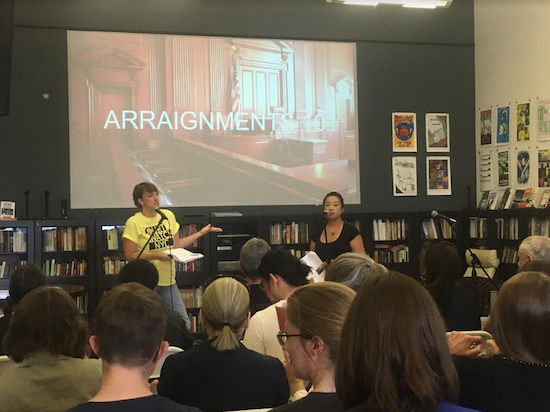Court Watch group wants to hold Brooklyn prosecutors accountable

Criminal Court cases in Brooklyn can happen pretty fast. This was no different. Four women stood in front of the seated crowd at the Verso Books office in DUMBO and began to read quickly from their scripts into the microphones.
In a terse voice, one woman listed off a series of numbers — the “docket number,” a list of charges and penal law numbers. The woman next to her, the “prosecutor,” jumped in and made an offer to the “judge.” The “public defender” then countered that offer.

Brooklyn Boro
View MoreNew York City’s most populous borough, Brooklyn, is home to nearly 2.6 million residents. If Brooklyn were an independent city it would be the fourth largest city in the United States. While Brooklyn has become the epitome of ‘cool and hip’ in recent years, for those that were born here, raised families here and improved communities over the years, Brooklyn has never been ‘uncool’.